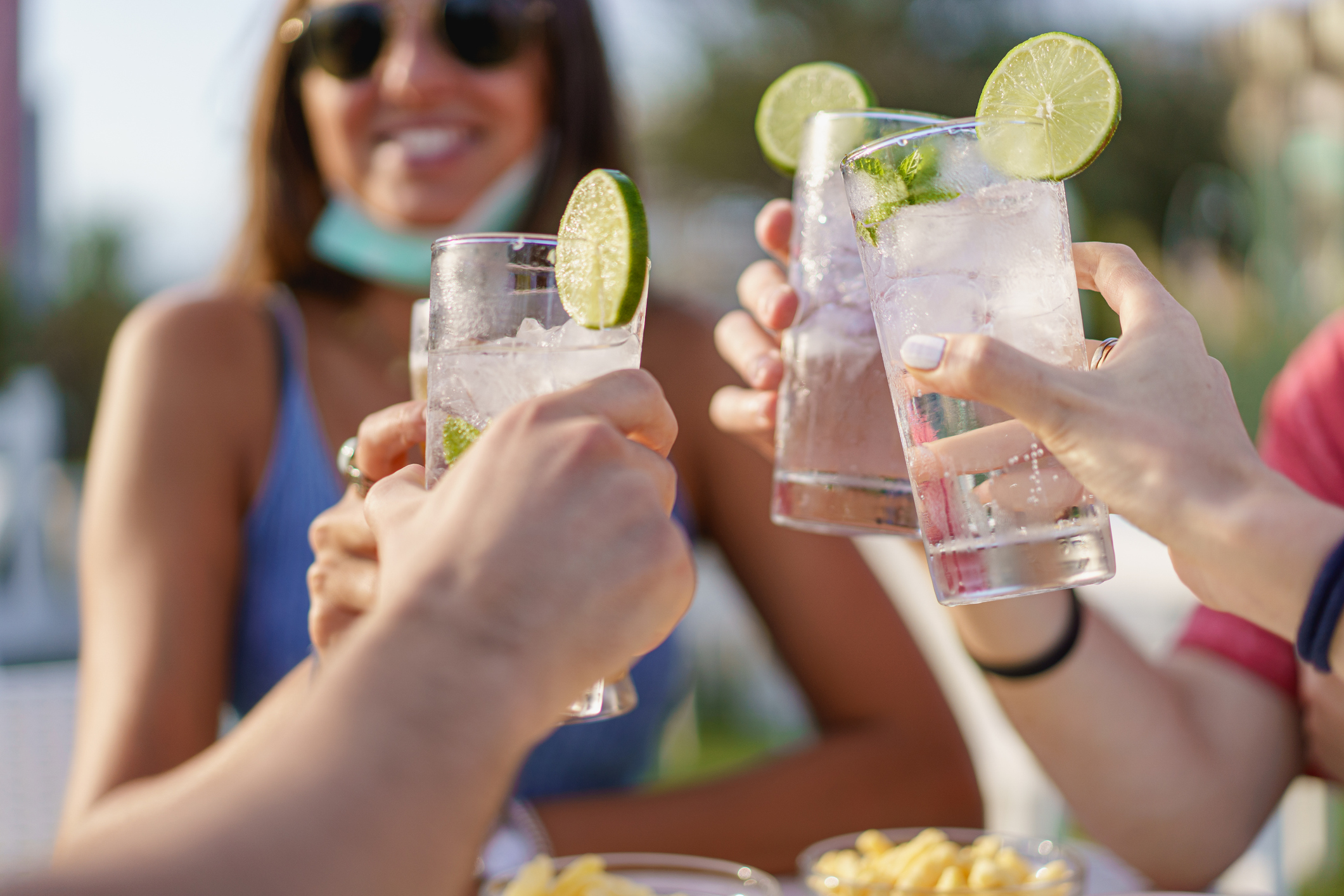Get Easy Health Digest™ in your inbox and don’t miss a thing when you subscribe today. Plus, get the free bonus report, Mother Nature’s Tips, Tricks and Remedies for Cholesterol, Blood Pressure & Blood Sugar as my way of saying welcome to the community!
Evidence mounts: To avoid cancer trade your cocktail for a mocktail

There’s been a lot of confusion around whether drinking alcohol is really that bad for your health.
For a long time, the conventional wisdom has been that drinking in moderation — meaning an occasional cocktail before dinner or a glass of wine with your meal — won’t do any serious damage to your health.
In fact, certain alcoholic beverages have demonstrated health benefits…
Drinking red wine has been connected with a healthier mouth and gut microbiome, and the antioxidants in red wine can help reduce the risk of heart disease, diabetes, Alzheimer’s disease and prostate cancer. Beer has numerous health benefits as well, including reduced inflammation, better heart health, lower cholesterol, improved blood sugar balance and a boost in weight loss.
But there’s also plenty of evidence that drinking alcohol — even moderately — opens you up to a flood of health risks.
For instance, if you drink during certain key periods in life, you can speed up cognitive decline. Drinking alcohol has been linked with higher risk of several diseases, including cardiovascular disease, liver disease, diabetes, lower respiratory infections, tuberculosis, epilepsy and pancreatitis. And rates of alcohol abuse and alcohol-related deaths have skyrocketed in recent years, particularly among women.
One of the most worrying health risks of alcohol consumption is that it might increase your chances of getting cancer. In an earlier review of 10 years of study data, researchers found associations between drinking alcohol and developing cancers of the oropharynx, larynx, esophagus, liver, colon, rectum and breast.
And these findings were just confirmed again…
Even moderate drinking increases cancer risk
According to the study by the World Health Organization’s (WHO) International Agency for Research on Cancer (IARC), drinking alcohol substantially increases the risk of several forms of cancer, including breast, colon, liver and oral cancers.
The global study attributed a total of 741,300 new cases of cancer to alcohol consumption, with alcohol accounting for 8.4 out of every 100,000 cancer cases worldwide. When looking at specific cancers, alcohol consumption was attributed to:
- 31.6 percent of esophageal cancer cases
- 20.2 percent of lip and oral cavity cancer cases
- 17.3 percent of liver cancer cases
- 4.4 percent of breast cancer cases
While heavy drinkers made up the bulk of total cancer cases, elevated cancer risk was found even in light to moderate drinkers, a category that includes those having up to two drinks a day. Light to moderate drinkers represented 1 out of 7 new cancer cases in 2020 and more than 100,000 cases worldwide.
“All drinking involves risk,” says study co-author Dr. Jürgen Rehm of the Centre for Addiction and Mental Health (CAMH) in Toronto. “And with alcohol-related cancers, all levels of consumption are associated with some risk. For example, each standard-sized glass of wine per day is associated with a 6 percent higher risk for developing female breast cancer.”
Because studies investigating the link between light to moderate drinking and cancer are relatively new, Dr. Rehm says the public policy does not yet reflect the degree of risk involved in even drinking small amounts of alcohol and advises governments to consider requiring the inclusion of this information on alcoholic beverage labels.
How alcohol causes cancer
Researchers say there are a number of ways alcohol can cause cancer, including:
- DNA damage. Alcohol can damage DNA and keep the body from repairing it. These DNA-damaged cells can then turn into cancer cells.
- Chronic alcohol consumption can also result in liver cirrhosis, which can lead to liver cancer.
- Alcohol use can also affect the body’s management of sex hormones, which can result in breast cancer.
- If you drink and smoke, your risk of head and neck cancer increases since alcohol increases the absorption of tobacco carcinogens.
So, should you stop drinking altogether? If you want to lower your cancer risk, then yes, you should avoid consuming alcoholic beverages. Luckily there are some ways to make the transition easier…
Stock your fridge with fruit juices (just be sure to avoid juices with cancer-fueling added sugars) and sparkling water so you can create your own alcohol-free happy hour mocktails.
And when you’re out at the bar with your friends, ask the bartender if they have any nonalcoholic specialty cocktails — they’re becoming quite popular these days with more people looking to cut back on the booze.
If you still want to drink beer and wine for their health benefits, there are plenty of nonalcoholic versions you can try. Nonalcoholic beer has become widely available in stores, and there are even microbreweries specializing in nonalcoholic beer — my husband is a big fan of this one. And wineries are beginning to turn out nonalcoholic wines as well — here’s a list of some to try.
You can also take supplements containing the flavonoids found in wine (such as resveratrol) or the hops used to make beer, which is where the health benefits of these beverages come from.
Editor’s note: Discover how to live a cancer prevention lifestyle — using foods, vitamins, minerals and herbs — as well as little-known therapies allowed in other countries but denied to you by American mainstream medicine. Click here to discover Surviving Cancer! A Comprehensive Guide to Understanding the Causes, Treatments and Big Business Behind Medicine’s Most Frightening Diagnosis!
Sources:
New WHO study links moderate alcohol use with higher cancer risk — Centre for Addiction and Mental Health
Global burden of cancer in 2020 attributable to alcohol consumption: a population-based study — The Lancet Oncology












